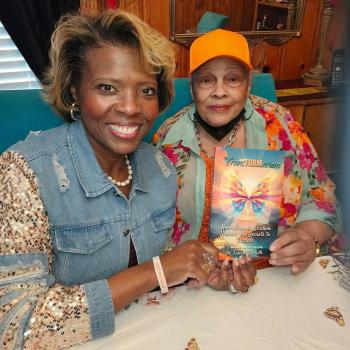Editors' Note: This article is part of the Patheos Public Square on the Future of Faith in America: Eastern Religions. Read other perspectives here.
India's religious traditions that survived the colonial experience have done so with a bruised and even battered sense of self. Colonialism undermined Hindu pride and the confident profession of a Hindu self-identity. This was not just the consequence of political subjugation and economic exploitation. The religious traditions of the colonizers, with exceptions, entered as partners in empire building, reflecting the colonizers' disdain for India's indigenous traditions.
British imperialism was echoed in exclusive theological claims that manifested themselves in religious writings and educational institutions. Hindu traditions were stereotyped and identified with superstitious beliefs and oppressive practices. Profound Hindu religious insights and ethical teachings were rarely commended.
From the 19th century onward, the Hindu response to this colonial legacy has been a special concern with fostering pride in a Hindu identity. "I am proud," said Swami Vivekananda to his Indian audiences, "to call myself a Hindu." Today, it is easy to recognize the continuing centrality of pride in Hindu discourse, both in India and in Hindu Diasporas around the world. It is expressed best in the succinct and well-know slogan, "Say with pride, I am a Hindu—garv se kaho hum Hindu hai."
However, even as Hindu communities sprout up in nations across the globe, Hindus still struggle with this battered religious self and painfully see it continued in a younger generation. Many Hindus are hesitant to profess their religious identity in their workplaces, at their schools or universities, among their peers, and in intimate personal relationships. And so the task of restoring religious pride is ongoing.
The future of the Hindu tradition, however, cannot be secured by a discourse that focuses only on pride. There are dangers in an exclusive focus on Hindu pride.
Although pride and self-criticism are not incompatible, pride often resists self-criticism. Today, there are Hindus who see the self-critical approach as one of weakness, and even as a replication of colonial voices. They worry that self-criticism increases vulnerability to proselytization.
Though understandable, it will be a great tragedy if the Hindu tradition concedes to colonialism its freedom to be self-critical. Hindu vulnerability to proselytization is not a consequence of self-criticism; it is, in part, a consequence of our failure to be truthful about oppressive structures within our tradition and our failure to identify and commend Hinduism's essential teachings of human equality, dignity, and justice.
We are not flawless and the Hindu past is not unblemished. The future of our tradition, however, is not contingent on a perfect past or on immunity to criticism in the present. It depends on its ability to address human problems and to promote the flourishing of all human beings. It is dependent on our ability to creatively and constructively interpret tradition in a changing context. In accomplishing these purposes, self-criticism is a strength that must be defended vigorously. Self-criticism and deep commitment to tradition are not mutually exclusive.
Just as pride may stifle self-criticism, a strident clamor for religious pride can silence religious humility. Humility (vinaya) is commended as a virtue in the Hindu tradition, but it is not one that is prominent in contemporary Hindu public discourse. Like self-criticism, it may even be perceived as a weakness.
Humility has deep theological roots in the Hindu tradition. In so many of its sacred texts and traditions, we are reminded that God is always more than we can define or comprehend with our finite minds and symbols. No single way of speaking exhausts and says everything that may be said of God. Therefore, we can only profess our precious religious commitments with humility and openness to learning from others.
However, unflinching pride can make interreligious dialogue very difficult. It tempts us to be careless with truth and to make exaggerated historical claims for our tradition. We are likely to always compare ourselves favorably with other traditions. Untempered pride closes us to the wisdom that is available from religious sources other than our own. Acknowledging the theological value of the religious other is treated with suspicion and condemned as a lack of commitment to one's own tradition. Without humility, pride easily degenerates into arrogance. A Hindu tradition that problematizes interreligious learning will not flourish in a world that continues to grow in religious diversity.
If we allow the need for pride (garva) to be the dominant hermeneutical lens through which we read our tradition and its history, our attention will be narrowly focused on our own community. There is the real danger of identifying religion with nation and ethnic group. We are likely also to miss its deepest and most spiritually transformative teachings that address universal human needs.
There are theological insights at the heart of the Hindu tradition that free us from unfulfilling conceptions of self and enable lives of compassion, promoting work that aims to overcome suffering. These teachings inspire us to be advocates for justice, dignity, and the equal worth of all. The value of a Hindu identity should be found in a commitment to these teachings.
Reading our tradition with a self-critical humility, a concern for truth (satyam), and the overcoming of suffering (duḥkha) better guarantees its continuing relevance.
7/1/2015 4:00:00 AM




